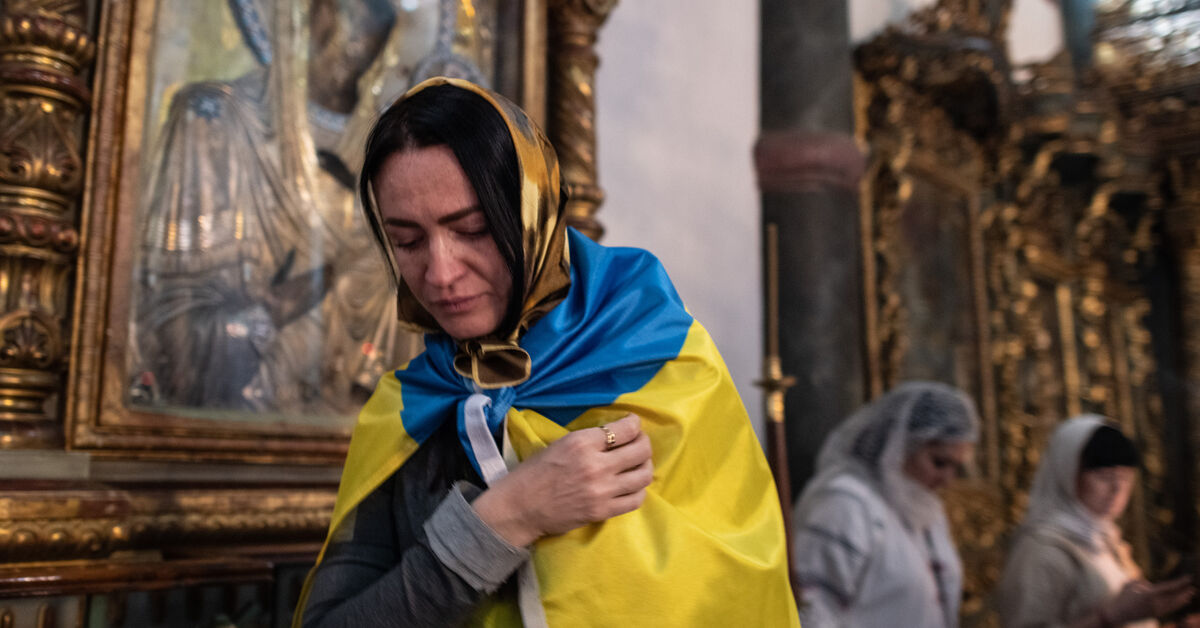The popular resort city of Antalya, the heart of the Turkish Riviera, has found itself on a major fault line in the world of Eastern Orthodoxy, with the divisions becoming increasingly visible since Russia’s invasion of Ukraine.
The schism took place in 2018 after the Istanbul-based Ecumenical Patriarchate decided to grant the Ukrainian Orthodox Church autocephaly, paving the way for the latter’s split from the Patriarchate of Moscow.
Antalya’s Orthodox community, which consists mostly of migrants from the former Soviet Union, is one of the largest Christian communities in Turkey. Even before the conflict in Ukraine, the Mediterranean city was the primary residence of 30,000 Russians. This number has increased dramatically in recent months, particularly after Moscow’s declaration of partial mobilization.
More than 80 daily flights connect Russia to Antalya, bringing in new residents as well as millions of tourists per annum. Antalya is also home to a significant Ukrainian community. The number of resident Ukrainians has risen notably since the start of the conflict in February.
Daria Pshenychna came to Antalya from Kyiv immediately after the Russian invasion began. A devout woman and a painter of Orthodox religious icons, Pshenychna said the presence of a lively Orthodox community was one of the reasons that drew her to the city. The community has since grown “enormously,” she told Al-Monitor. Many congregants had to stand outside on the streets during a packed Easter mass at the Church of Agios Alypios in the city’s historic center.
The Ecumenical Patriarchate reacquired and restored the 19th-century church in 2009 — a testament of its close ties with the Patriarchate of Moscow prior to the 2018 fallout. The Agios Alypios was allowed to function for many years as a Russian parish church within the canonical territory of the Ecumenical Patriarchate, allowing all Orthodox residents and visitors in Antalya to congregate in the same house of worship. It is also a rare example in Turkey’s modern history of an abandoned Ottoman-era church being restored specifically as a place of worship.
The fallout between the Ecumenical and Moscow patriarchates reverberated strongly in Antalya, essentially dividing the Orthodox community in two. Ukrainians, Georgians, Iranians, Turks and other Orthodox worshipers continued to frequent the Church of Agios Alypios, whereas many Russians were left without a place of worship. Since then, both patriarchates have increased their efforts to establish dominance in Antalya.
In 2019, following consultations with Turkey’s Ministry of Justice and the Ministry of Culture and Tourism, the Russian community in Antalya proceeded to establish a new religious association linked to the Patriarchate of Moscow. Soon after, it established two new churches in Antalya and nearby Alanya.
The Ecumenical Patriarchate has also expanded its influence in the province, holding celebrations for important festivities in public spaces, strengthening its social media presence and inaugurating a new purpose-built Orthodox church in the touristic district of Manavgat earlier this year.
Despite the schism, many Russians continue to attend services at the Church of Agios Alypios and special prayers have been held for all victims of the war, according to Pshenychna.
“Politics are not discussed in the church,” she noted. A sign at the entrance says “Leave your three colors or two colors outside, this is a house of God,” she added, referring to the flags of Russia and Ukraine. Nonetheless, Pshenychna was pessimistic about a reconciliation between the two patriarchates anytime soon.
Lali San, a Georgian Orthodox woman living in Antalya, told Al-Monitor that the Georgian community is still cold toward Russia over the 2008 Russian-Georgian war. “We do not want to have anything in common, including our church,” she said.
The exacerbation of the conflict in Ukraine has prompted speculation that Moscow may seek to establish an exarchate in Turkey. Such a move would shatter the status quo for Eastern Orthodoxy in Turkey and be a direct affront to the authority and jurisdiction of the Ecumenical Patriarchate. It would also escalate tensions between Moscow and the rest of the Orthodox world, possibly prompting intervention by Turkish authorities.
Source:Al-Monitor
***Show us some LOVE by sharing it!***



